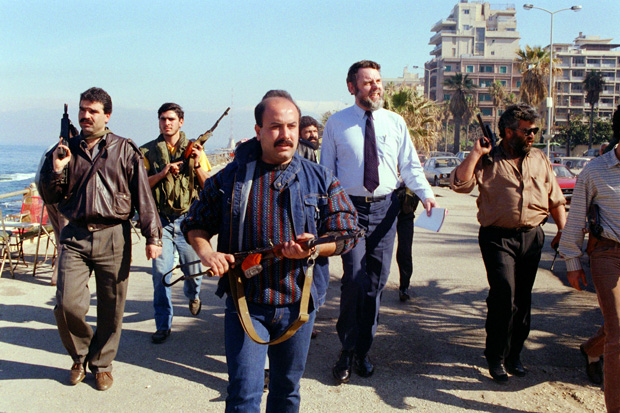Fifty years ago on Monday the World Service programme Outlook was launched as an innovative news and current affairs programme presented ‘magazine style’ with live interviews featuring ‘star’ guests. Such ‘soft’ journalism was highly suspect back in 1966, as England won the World Cup, Russia landed the Lunar 9 mission on the moon and China embarked on its Maoist cultural revolution, because it relied not so much on factual truths or reportage but on the emotional truth of what it felt like to be there in that place at that moment in time. Over the years, though, the guests on Outlook have taken over from the news content precisely because they can tell us stories that not so much illuminate the headlines as take us into the heart of what it is to be human, whether in a small village in Afghanistan or the Australian bush.
Back in the 1980s Terry Waite and the other Beirut hostages were encouraged by what they heard on Outlook, which they listened to in their makeshift cells on short wave transistor radios. A few years ago when the programme was threatened with being taken off air, because of a renewed demand for ‘straight’ news and information, Waite and others campaigned for its survival. He said that hearing the stories of other people had ‘lifted his soul’ and helped him not just mentally but also spiritually through those years of solitary confinement.
Monday’s programme focused on the Outlook Inspiration Awards, a birthday celebration of 50 remarkable people whose stories have either featured on the programme or been specially nominated by its listeners because of the way they have taken a bad situation and turned it into something hopeful not just for themselves but for many people. From that original list of 50 nominations, three people were selected to receive awards at a special live broadcast from the Radio Theatre in London. Hearing them talk about their work, and why they do it, brought tears to the eyes of everyone there not from sadness but from hope, from the realisation that darkness can be turned into light, that not all news need necessarily be bad.
Kees Veldboer, for instance, had been an ambulance driver in Rotterdam for 20 years. One day he was taking a terminally ill patient from one hospital to another, nothing unusual in that, but they had a little time and Veldboer took a short detour to show the patient, who had not been outside for three months, boats on the canal. He saw the man smile, which struck Veldboer because of the man’s desperate situation. He asked him what would be his wish. The man, who had been a keen sailor, wanted to go on a boat for one last time and in that moment Veldboer resolved to help him do it, even though this meant finding a way to take a stretcher on board.
Undeterred, Veldboer asked his boss if he could use an ambulance and made a couple more phone calls to organise the boat. ‘It was so easy,’ he said, resolving that this could be a way to help others in such a terminal state. He set up the Ambulance Wish Foundation, which grants the wishes of those close to death, whether it be a ticket to a Lionel Richie concert or a day at the seaside. My favourite of these wishes, though, can be seen on the Outlook website where there’s a picture of a patient lying on a hospital bed in what I presume is the Rijksmuseum having a private view of a Rembrandt self portrait. Such a brilliant, original idea, yet in person Veldboer was so humble, reduced to tears himself by hearing from those he has helped.
Dorris Francis, too, came up with a simple yet so effective balm to the grief she felt after her daughter died in a road accident in February 2010. She now spends every day at the traffic crossing in a Delhi suburb where the accident happened, directing the hectic confusion of tuk tuks, cars, lorries, bullock carts, scooters, bicycles to prevent anyone else being killed at that point. Dorris was in London to receive her award, never having left Delhi before, a gracious, calm inspiration, with no bitterness, just determination to make something good out of her own personal tragedy.
Natalia Ponce de Leon came to London to receive her award, this time from Colombia where two years ago she was attacked with acid by a man she hardly knew. Her face, arms, abdomen and one of her legs were all burned, the flesh dissolving as time passed and she waited for an ambulance. She lost her face, her identity, but after her initial anger she soon turned it around into something else, deciding instead that she must help others in the same situation (Colombia has the highest rate of acid attacks in the world). ‘I’ve filled my life with love,’ she told us, and for once I was glad to be there in person and not just listening on the radio because you could see it in her face, now rebuilt, almost from scratch. Her smile, her expression was so serene, not at all damaged.






Comments